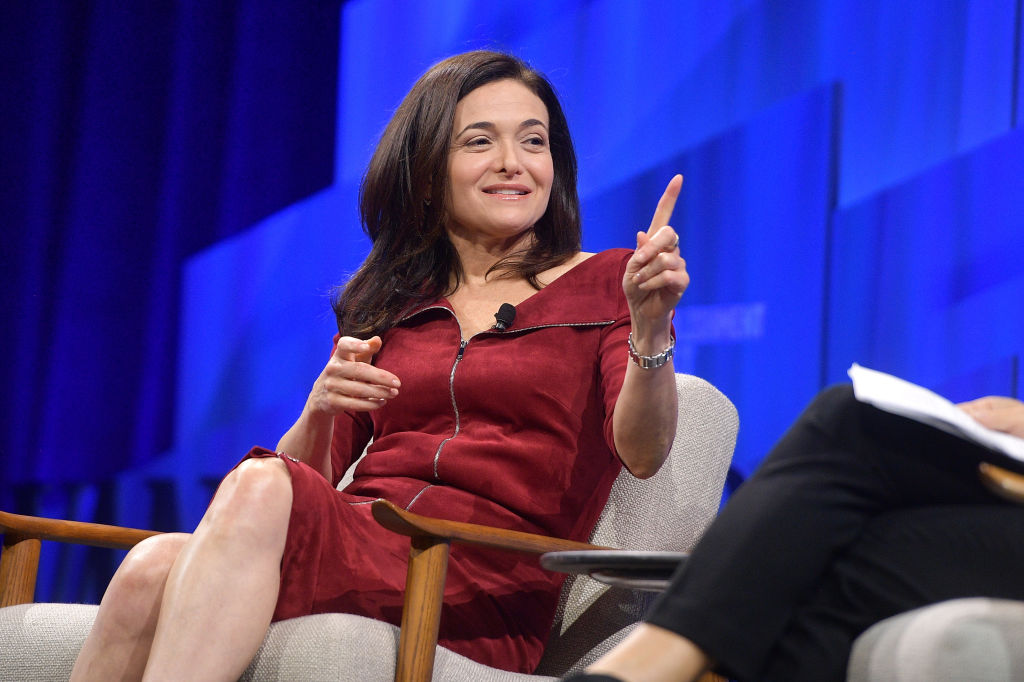There’s a revealing moment at the very end of “Why We Have So Few Women Leaders,” a 2010 TED talk delivered by Facebook’s then-chief operating officer, Sheryl Sandberg.
After expounding on her vision of a world in which 50 percent of CEOs and heads of state are women, Sandberg shares a more personal dream: “I want my daughter to have the choice not just to succeed, but to be liked for her accomplishments.” Now, as Sandberg leaves Facebook’s parent company Meta after fourteen years, she leaves behind a mixed and controversial record in her public life. Sandberg has earned success, but she hasn’t won much public admiration.
If, like me, you have the misfortune of using the Meta advertising platform professionally, you have your own reasons to resent the architect of Facebook Ads. But Sandberg has proven a divisive figure for more than just that maddening interface. The TED talk became her international bestseller Lean In, a self-help book encouraging women to be more proactive in their careers, especially if they hope to have a family. Many feminists later argued that a can-do attitude isn’t enough when faced with systemic inequity. Why should individual women, rather than employers, be shamed for the paucity of women at the top, they asked.
Sandberg’s tenure at Facebook proved even more contentious than her moment as a self-help guru. While conservatives frequently complain about censorship on the platform, liberals point to the Cambridge Analytica scandal, in which the personal data of more than 80 million Facebook users was improperly accessed for Trump-campaign advertising. Furthermore, conspiracies like the film Plandemic spread like wildfire on the platform, causing many left-leaning politicians to criticize Facebook’s content moderation — an area of the business under Sandberg’s purview.
Finally, Sandberg’s leadership at Meta coincided with damning findings about the effects of the platform on mental health — particularly the mental health of teen girls. Meta’s own internal research revealed that their platform Instagram was causing significant harm to young women. According to documents reported on by the Wall Street Journal, research presented to Meta leadership included statements like, “Thirty-two percent of teen girls said that when they felt bad about their bodies, Instagram made them feel worse.” The report described how teens “often feel ‘addicted’ and know that what they’re seeing is bad for their mental health but feel unable to stop themselves.” Being a teen girl has never been easy, but the pervasiveness of media like Instagram has made it much harder.
So Sandberg hasn’t managed to be broadly celebrated for her achievements. But now, as she leaves Meta, she offers yet more fodder for controversy: she’s tied her departure to the impending reversal of Roe v. Wade, a decision she’s denounced on her own social media channels (where else?) “This is a really important moment for women,” Sandberg said in an interview. “This is a really important moment for me to be able to do more with my philanthropy, with my foundation.”
You might take a cynical view of this: Sandberg needs even her mixed-legacy departure to somehow be a feminist act. (The “#girlboss” trope dies hard, though it has been eulogized repeatedly in the past two years.) Perhaps championing abortion rights will make her, once again, a hero to the liberals she’s been letting down since 2015. Perhaps she’ll have another chance to be liked for her accomplishments by joining the chorus of celebrities and public figures decrying the Supreme Court.
I want to suggest a slightly different way to view Sandberg’s abortion advocacy: as an extension of the Lean In approach. Beneath the self-help bromides of Lean In, there’s another premise — that children are the natural enemies of women’s success. As soon as a woman starts considering having a family, Sandberg insists, she stops raising her hand, tacitly taking herself out of the running for promotions to positions of power. Then when she has children, they start clinging to her legs and asking her not to go on business trips, as she reports firsthand; they stake a claim not just on a mother’s body but on her heart, which makes getting ahead that much harder. If the goal of feminism is for women to achieve 50 percent of board seats and elected offices, then children are simply disastrous, every maternity leave a chance to fall behind. Once again, the onus is on an individual woman to choose success, while her employer and her society bear no responsibility for creating hospitable conditions for families.
Who knows if every teen girl harmed by Instagram’s addictive algorithm or victimized by cyberbullying has the potential to become a tech founder or a senator? But surely a self-styled champion of women must care deeply about vulnerable girls hurt by the very technology she helped to grow.
If Sandberg were committed to making a difference to all young women, not just future CEOs, that’s a change in direction that I, for one, would both like and respect.
This article was originally published in The Spectator’s July 2022 World edition.

























